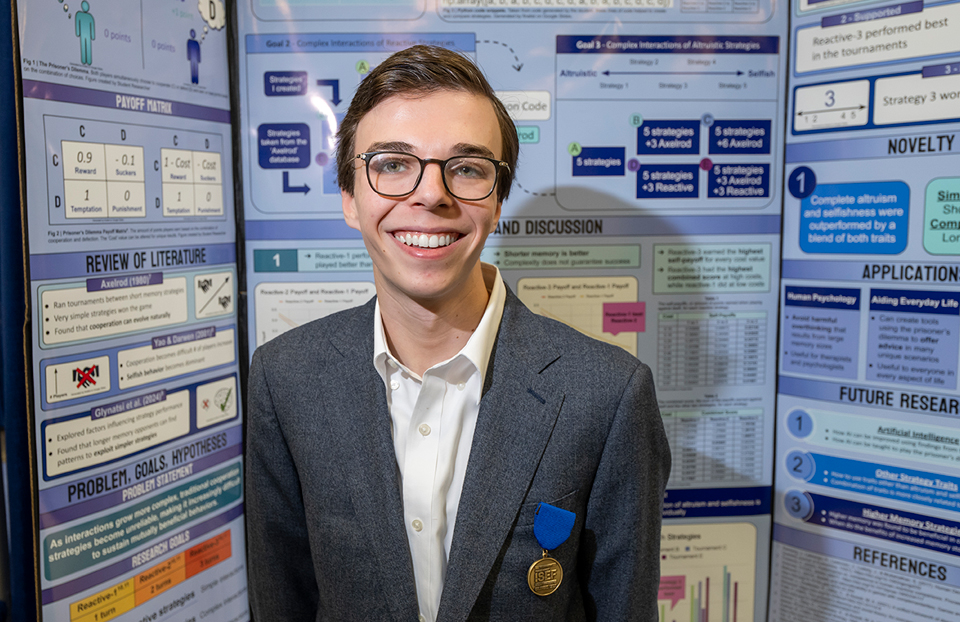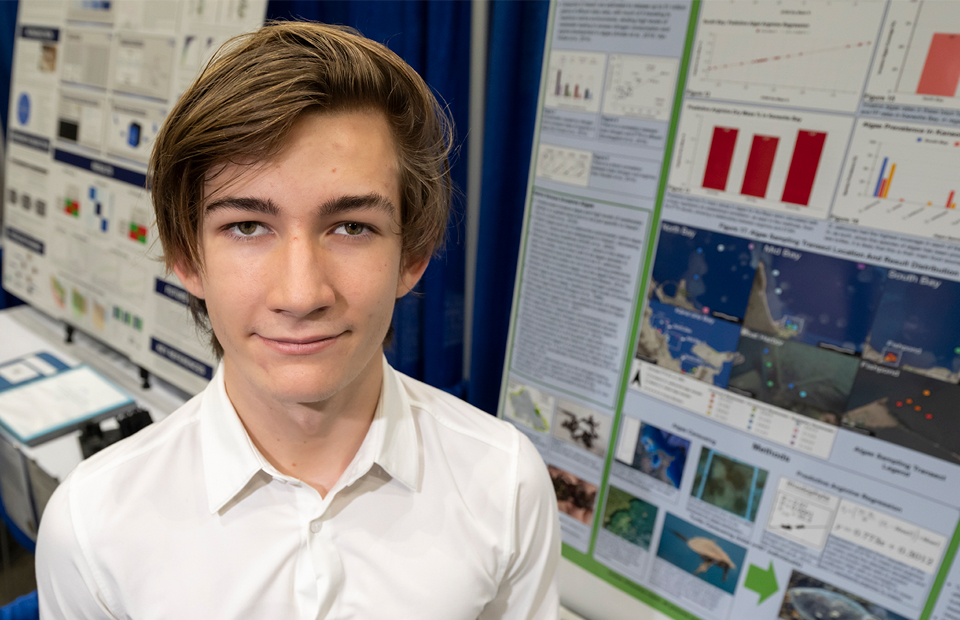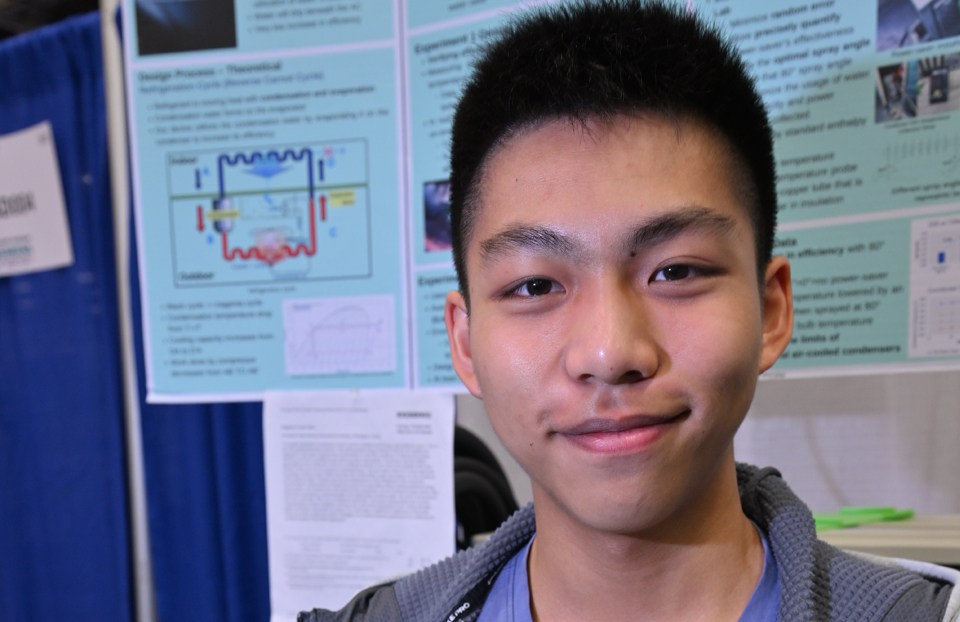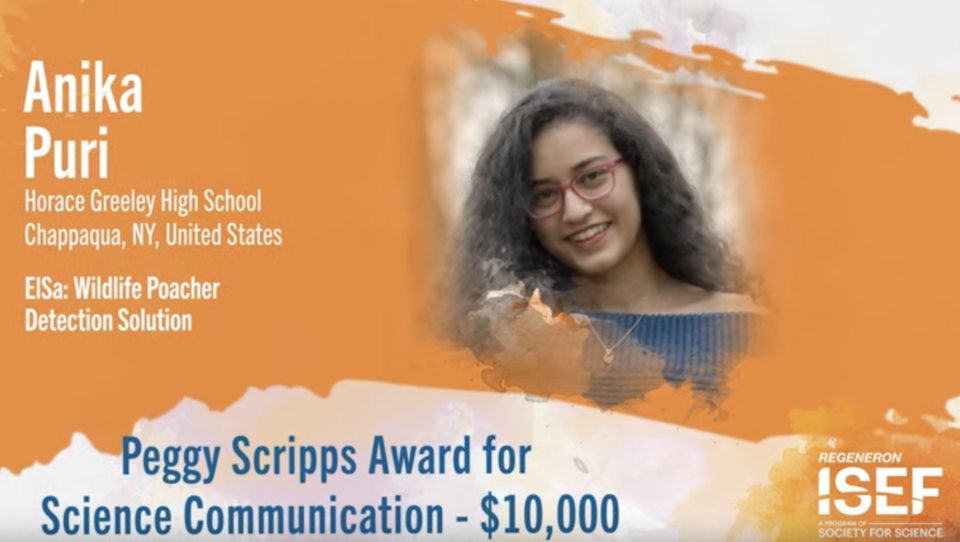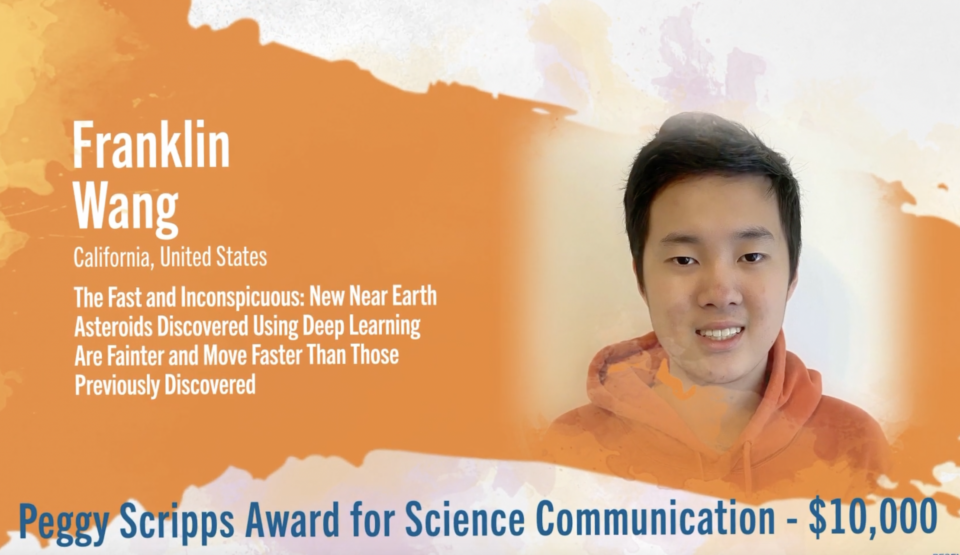Peggy Scripps Award for Science Communication
Society for Science is proud to honor Peggy Scripps through a $10,000 award. Peggy Scripps, the granddaughter of Society for Science founder, E. W. Scripps, was a science journalist who served as a writer and editor of Science Newsletter for many years.
The Peggy Scripps Award for Scien_ce Communication will be given to the finalist who is best able to communicate their project to the general public, explaining both the science and its potential impact on society. The award will be used by the winner to cover post-secondary educational expenses.
Learn more about the Regeneron International Science and Engineering Fair and about the awards presented at ISEF.
